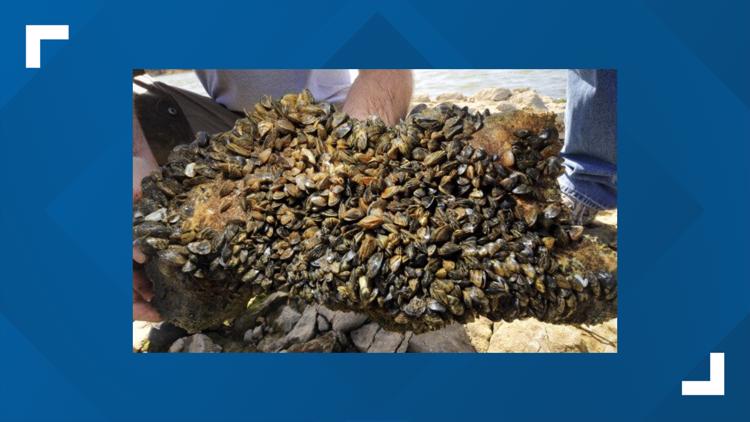PENNSYLVANIA, USA — A recent report by the Scientific and Technical Advisory Committee (STAC) outlines the importance of freshwater mussels in Pennsylvania's watersheds and their declining population.
The STAC provides scientific and technical guidance to the Chesapeake Bay Program on ways to restore and protect the bay.
The report entitled "Incorporating Freshwater Mussels into the Chesapeake Bay Restoration Efforts" talks about the significant ecological value freshwater mussels present and the need to expand their priority in the Chesapeake Bay Restoration efforts.
According to a July 29 Chesapeake Bay Foundation press release, around 25 mussel species reside in the Chesapeake Bay's freshwater rivers and streams. More than half of this species are now facing extinction.
"Freshwater Mussels are more threatened/endangered than any other class of organisms in the country," according to the Chesapeake Bay Foundation.
Chesapeake Bay Foundation Virginia Senior Scientist Dr. Joseph Wood and lead author on the report states: “Freshwater mussels really are unsung heroes in Chesapeake rivers and streams. But as their populations plummet, I’m afraid we could lose some mussel species before we fully understand their benefits.”
Why are freshwater mussels important?
Just one mussel can filter up to 15 gallons of water a day. This in turn helps prevent pollutants such as nitrogen from flowing downstream and ensures clean water.
“A lot of people call them the ‘livers of our rivers’ because they filter things that are harmful to humans, like toxins and heavy metals out of the water that passes over them,” Dr. Heather Galbraith, a Pennsylvania Fish and Boat Commission (PFBC) Water Planning Biologist and a contributor to the report said.
In the Commonwealth of Pennsylvania, more than 25,000 miles of rivers and streams are polluted and flowing into the Chesapeake Bay. Increasing freshwater mussel populations can help secure clean water, according to the press release.
What actions are being taken?
The Mussels for Clean Water Initiative (MuCWI) are working to create a central hatchery by 2022 in southwest Philadelphia, where up to 500,000 baby mussels will be produced annually.
“The goal of MuCWI is to restore functional mussel beds containing natural assemblages of both common and rare species,” Dr. Danielle Kreeger, Science Director for the Partnership for the Delaware Estuary said.
But before these mussels can thrive, a proper habitat must be secured for their survival.
“What mussels don’t like is unstable or scoured bottom habitat,” Dr. Kreeger said. "Mussels need a safe place to burrow into, so they don’t get washed out or buried by fine sediments every time it rains.”
The press release reiterates raising funding for clean water and restoring habitat to protect and grow the freshwater mussel population is key to expanding Chesapeake Bay Restoration efforts.



